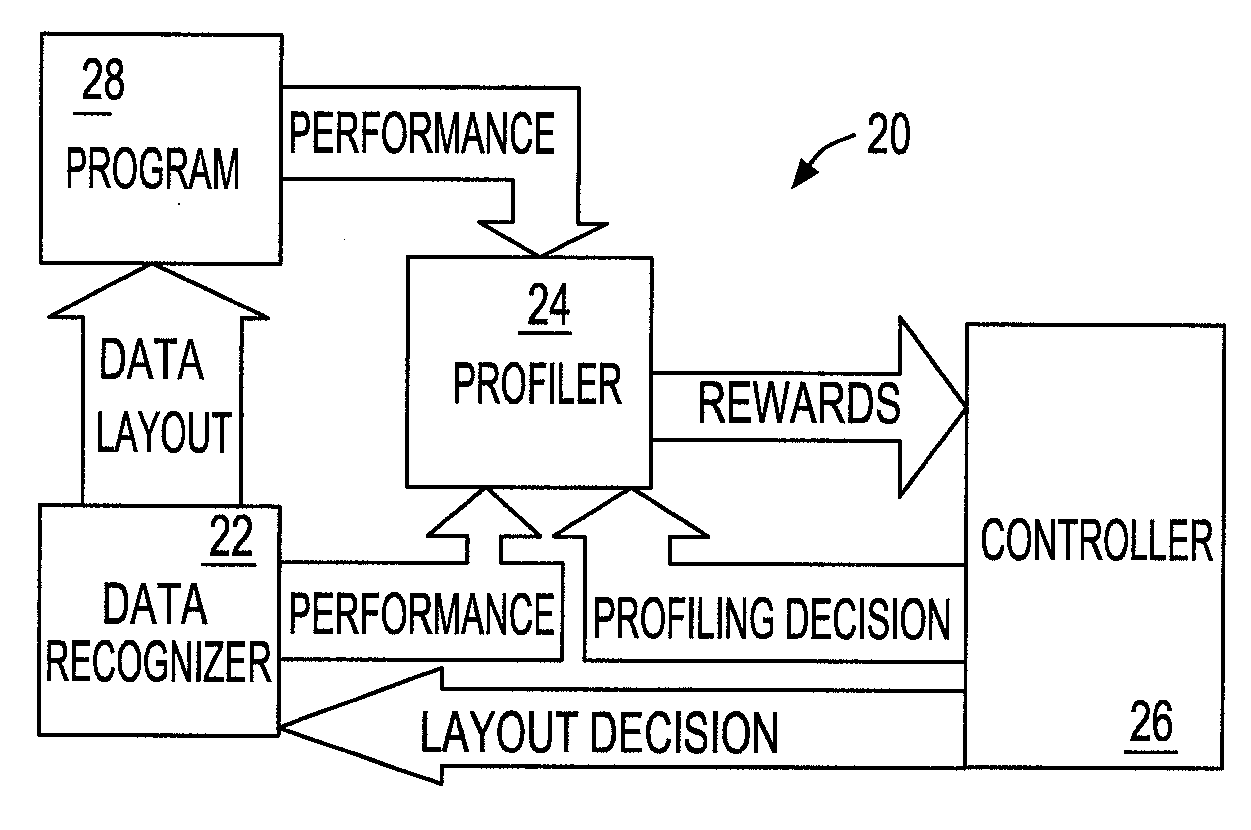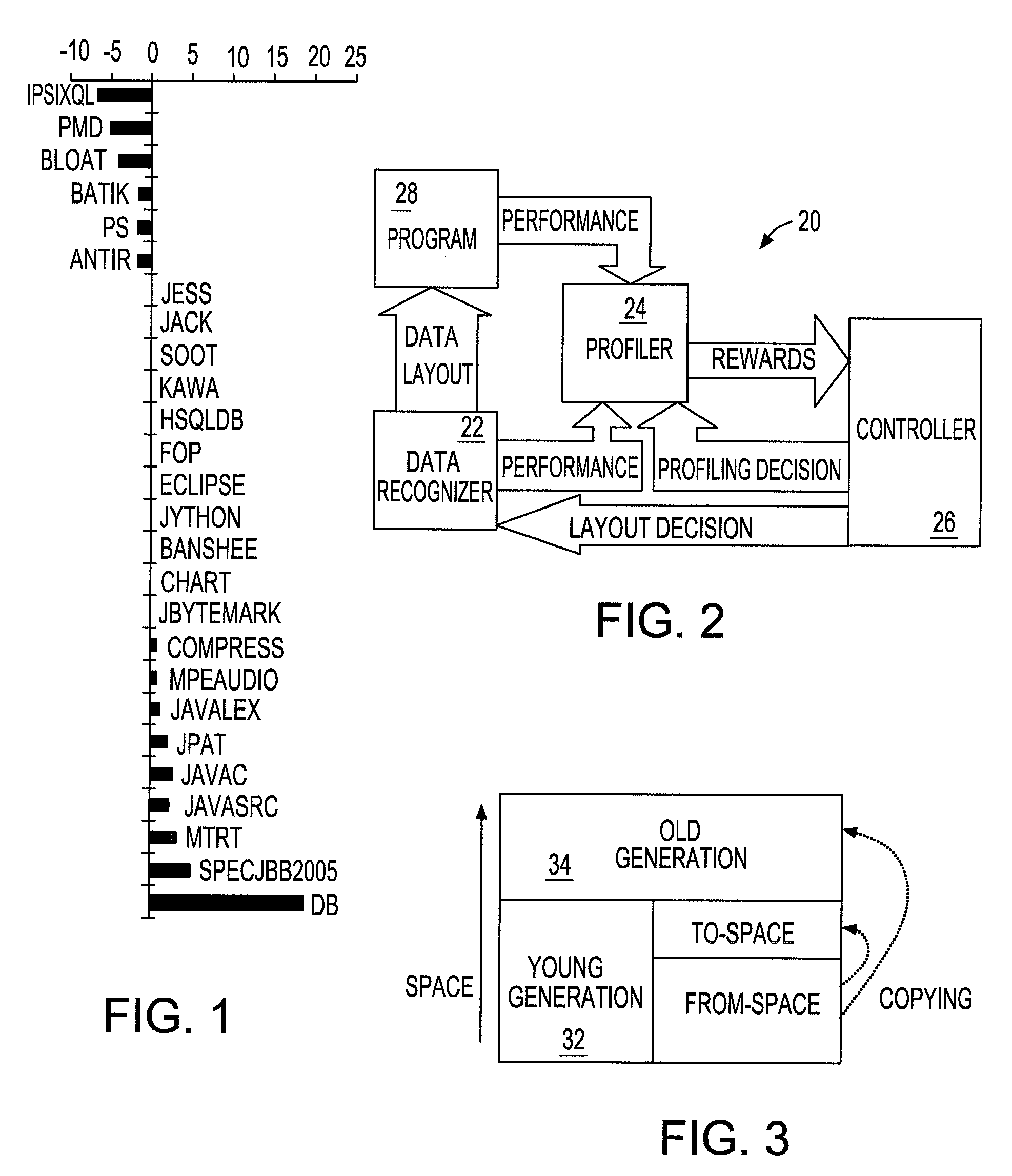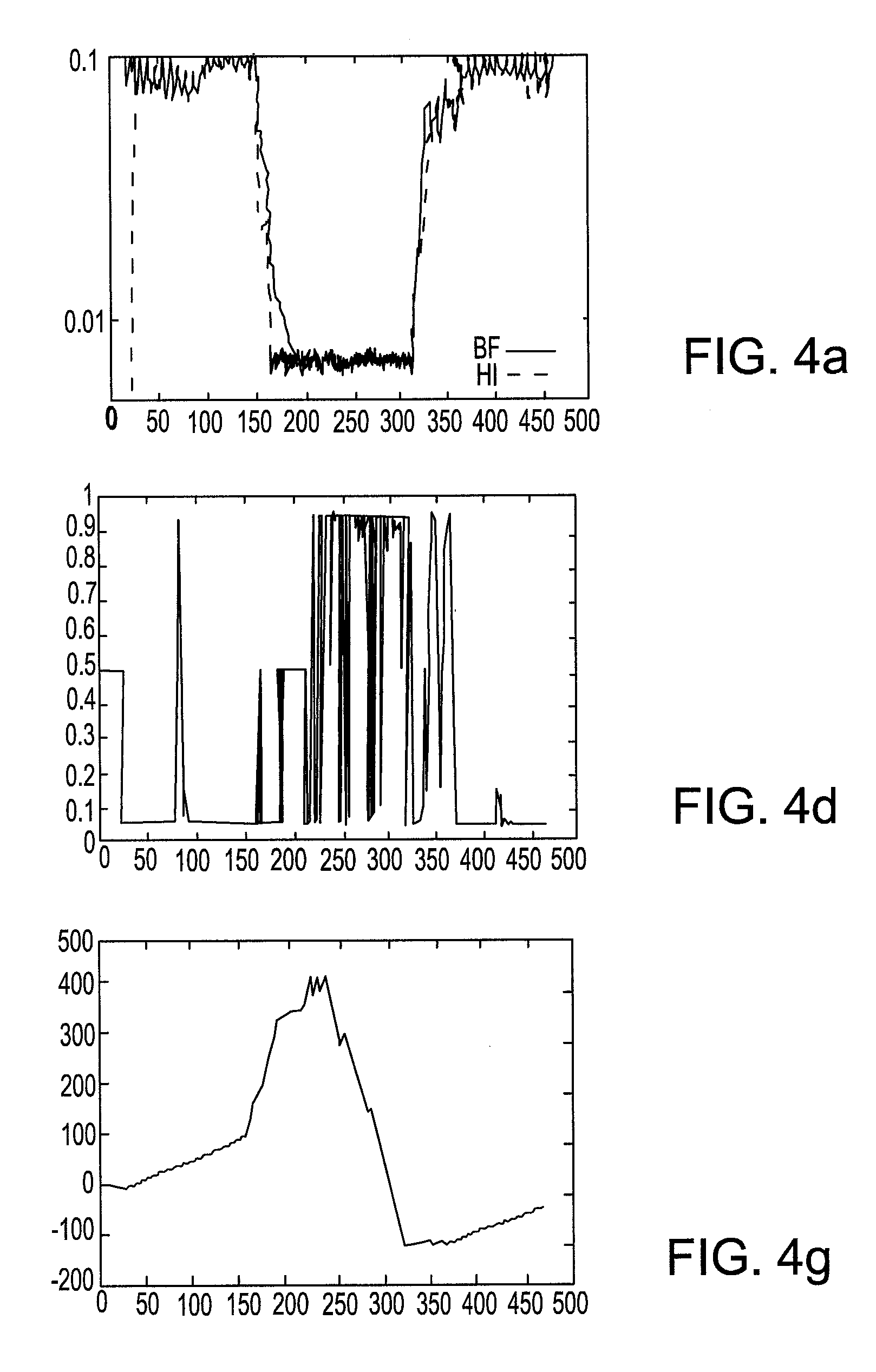Method and system for determining optimal data layout using blind justice
a data layout and blind justice technology, applied in the field of data processing, can solve problems such as degrade or improve runtime, slow program running, cache and tlb misses, etc., and achieve the effect of improving performan
- Summary
- Abstract
- Description
- Claims
- Application Information
AI Technical Summary
Benefits of technology
Problems solved by technology
Method used
Image
Examples
Embodiment Construction
[0025]The present invention, generally, provides a procedure for finding an optimal data layout. In accordance with the instant invention, this is done by trying one of several data layouts in the memory, measuring the impact of said one data layout on a performance of a program, and deciding which of said several data layouts to try next. The trying and measuring steps are repeated, and one of said several data layouts are selected as best or optimal based on the measurings.
[0026]The preferred embodiment of the invention provides layout auditing, a framework for picking the best data layout online without requiring any user input. Layout auditing optimizes data layouts with a try-measure-decide feedback loop: use a data reorganizer to try one of several data layouts, use a profiler to measure the impact of the data layout on performance, and use a controller to decide which data layout to try next.
Layout Auditing Framework
[0027]FIG. 2 illustrates the preferred try-measure-decide fe...
PUM
 Login to View More
Login to View More Abstract
Description
Claims
Application Information
 Login to View More
Login to View More - R&D
- Intellectual Property
- Life Sciences
- Materials
- Tech Scout
- Unparalleled Data Quality
- Higher Quality Content
- 60% Fewer Hallucinations
Browse by: Latest US Patents, China's latest patents, Technical Efficacy Thesaurus, Application Domain, Technology Topic, Popular Technical Reports.
© 2025 PatSnap. All rights reserved.Legal|Privacy policy|Modern Slavery Act Transparency Statement|Sitemap|About US| Contact US: help@patsnap.com



